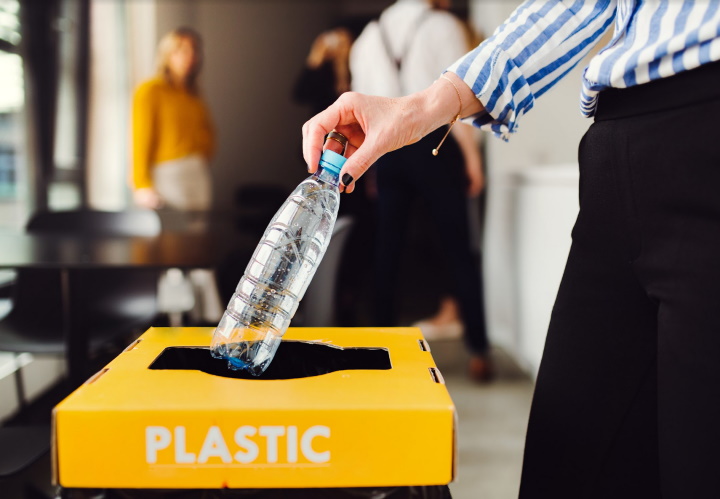
No matter how big or small of a business you’re in, you’re bound to create waste. It’s a fact of life that people learn to live with. It doesn’t even matter what type of business it is. Although research is on the way for methods of total garbage disposal, humans have yet to unlock the secrets of making waste conveniently disappear. So, in the meantime, it falls on you to be mindful of how your business addresses its waste.
Hazardous waste is dangerous and must be dealt with accordingly. Whether through practices like partnering with other businesses that can offer on-site service or through aggressive information campaigns, every little bit helps. With this article, you’ll hopefully be able to identify what waste your business creates and how to properly deal with it.
What Is Hazardous Waste?
Hazardous waste is defined as waste that possesses dangerous properties. They can contain organic or inorganic compounds and pose serious threats to humans, animals, and the environment. They can be created through various processes and come in solid, liquid, gas, or even sludge form.
Waste that exhibits any of these four traits can be categorized as hazardous waste:
- Corrosivity - having the quality or property to erode, corrode, or eat away
- Ignitibility - having the quality cause fire during storage, transport, or disposal
- Toxicity - having the quality of being toxic or poisonous
- Reactivity - having the quality to undergo a chemical reaction
Due to the nature of the waste, practically any place that has people in it technically produces this type of by-product. And yet businesses hold a special responsibility in addressing waste concerns and how they contribute to climate change. Every business wishes to earn the trust of the public, and as such, it must uphold the highest standards of hazardous waste disposal.
What Counts As Hazardous Business Waste?
To successfully operate on a day-to-day basis, businesses go through a number of supplies to help keep their operations running. An excellent first step in dealing with waste can be by keeping an eye out for these items and keeping track of the quantity your business consumes. After which, the method of disposal can be discussed.
Common sources of hazardous waste found in the office may include:
- Fluorescent Tubes And Compact Fluorescent Lights (CFLs)
These types of lighting can be commonly found in most businesses. Although cheap and a better alternative to LEDs, the presence of mercury in them can cause contamination with other waste and pollute water supplies.
- Cleaning Products
Any place that has a kitchen or bathroom is sure to have cleaning products. If haphazardly dumped down a drain, they can create lingering vapours that are dangerous to inhale and may destroy pipework.
- Waste Electrical And Electronic Waste (WEEE)
Technology has become a necessary tool for every business, so the need for constant upgrades is a normal occurrence. When disposed of carelessly, monitors and other computer peripherals can leak chromium or lead which are highly toxic substances.
- Pharmaceuticals And Clinical Waste
Having medical supplies nearby is always a good idea. Yet be mindful of expired medicines and infectious articles. They run the risk of contaminating soil and exposing fellow humans to sickness.
How Can Your Business Handle Its Hazardous Waste?
What you must realize at this point is that dealing with your business’s hazardous waste isn’t as simple as tossing it in with the rest of the trash. Proper time and thought must be expended in implementing a disposal method that works for your business.
Remember that mishandling waste is punishable by law and has adverse, long-lasting effects on people and the environment. Resist the urge to take the easy way out as you may find yourself addressing two problems in one strike.
Your business can improve its public profile and save money in the long run by implementing hazardous waste disposal and processing. The start of this journey can look something like this:
- Inspect Your Garbage And Observe For Hazardous Waste
Set up a system of inspection in order to get an accurate image of what type of hazardous materials your business ends up creating.
- Segregate Then Store Accordingly
Allot space in your establishment specifically for this type of waste, then make sure to separate them from other types of garbage to prevent contamination. It’s also important to note the use of proper containers and extra-strength bags to keep the waste as contained as possible.
- Employ The Services Of Licensed Waste Carriers
Garbage of this type is never just collected and tossed into a landfill. It must be taken a proper facility first for recycling and processing. Partnering with a professional waste carrier for your business assures you of the proper collection, delivery, and disposal of your hazardous waste.
- Keep Detailed Records Of Waste Your Establishment Produces
As time passes, so do the needs of your business. Keeping a dedicated record will allow you to make guided and efficient decisions towards dealing with your business’ waste.
Conclusion
Your business can serve as a shining example of the good ethical practices can do for the earth. Putting thought into what happens after items have passed through your establishment is only the first step.

| < Prev | Next > |
|---|




